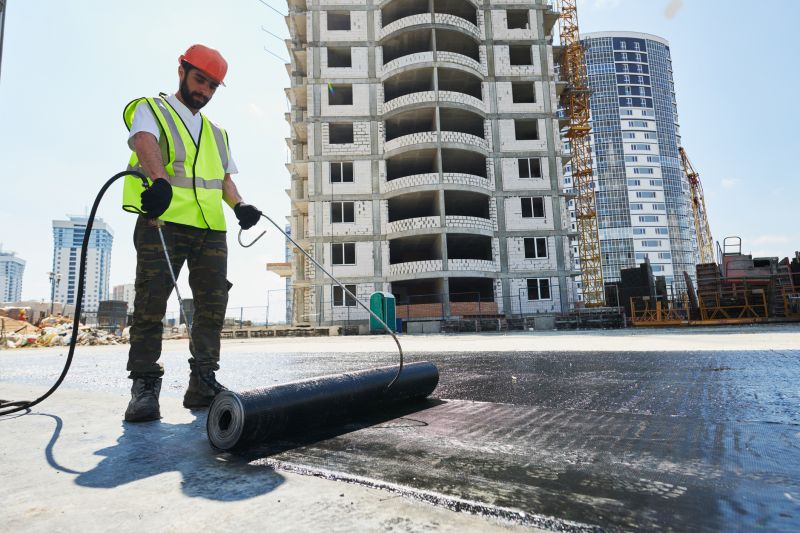Popular Roofing Service Products for Professional Contractors
Identify the most sought-after tools and supplies that support effective and efficient roofing installations and repairs.
 In Southern Pines, NC, maintaining and repairing roofs requires a variety of specialized products designed to ensure durability, safety, and efficiency. Whether you're a professional contractor or a dedicated homeowner, having the right tools and materials is essential for successful roofing projects. From protective gear to sealing solutions, the range of products available can support different stages of roofing work, including inspection, repair, replacement, and maintenance.
In Southern Pines, NC, maintaining and repairing roofs requires a variety of specialized products designed to ensure durability, safety, and efficiency. Whether you're a professional contractor or a dedicated homeowner, having the right tools and materials is essential for successful roofing projects. From protective gear to sealing solutions, the range of products available can support different stages of roofing work, including inspection, repair, replacement, and maintenance.
Top Overall Option
Roofing Underlayment
Roofing underlayment serves as a critical protective layer installed beneath shingles or other roofing materials. It acts as a barrier against moisture, leaks, and wind-driven rain, helping to extend the lifespan of the roof. Available in various materials such as synthetic, felt, or rubberized options, underlayment provides an added layer of defense and can improve the overall performance of a roofing system. Its versatility and importance make it a fundamental product for roofing projects of any size, offering peace of mind and enhanced durability.
Types of Products For Roofing Service
Roofing Shingles
Various styles and materials designed to cover and protect the roof surface, providing weather resistance and aesthetic appeal.
Roofing Underlayment
A protective layer installed beneath shingles to prevent moisture infiltration and enhance durability.
Roof Flashing
Metal or plastic strips used to seal joints and intersections, preventing water penetration.
Roofing Sealants
Specialized adhesives used to seal gaps, cracks, and joints to prevent leaks.
Roofing Nails and Fasteners
Hardware essential for securing shingles, flashing, and other roofing components.
Roofing Membranes
Weatherproofing sheets used in flat or low-slope roofing systems for added protection.
Roofing Tools
Instruments such as nail guns, hammers, and cutting tools designed for efficient installation.
Safety Equipment
Gear including harnesses, helmets, gloves, and fall protection systems to ensure worker safety.
Roofing Adhesives
Chemicals used to bond roofing materials and improve sealing.
Roof Vents and Exhausts
Components that facilitate proper attic ventilation and airflow.
Roof Coatings
Protective layers applied to extend the life of roofing materials and improve weather resistance.
Gutter Systems
Products designed for directing water away from the roof and foundation, preventing water damage.
Roof Inspection Cameras
Devices used to visually assess roof conditions safely from the ground or at height.
Ladders and Scaffolding
Equipment that provides safe access to elevated roofing areas.
Roof Drainage Accessories
Components that assist in effective water runoff management.
Roof Repair Kits
All-in-one sets containing essential items for small repairs and patching.
Popular Choices
A durable, weather-resistant layer suitable for various roofing types, popular for its ease of installation.
Flexible and long-lasting, often used in critical areas to prevent leaks.
Corrosion-resistant fasteners essential for securing roofing materials reliably.
Versatile sealants used for sealing around vents, chimneys, and flashing.
Personal fall arrest systems that enhance safety during roofing work at heights.
Portable covers used to protect unfinished or exposed roofing areas from weather damage.
Compact devices that help identify issues without the need for extensive manual inspection.
Specialized hammers designed for driving nails and fitting roofing materials.
Devices that improve attic airflow and help regulate temperature and moisture.
Equipment used to apply protective coatings evenly across roofing surfaces.
Accessories that prevent debris buildup in gutters, ensuring proper drainage.
Flexible sheets designed for low-slope roofing systems, offering weatherproof protection.
Self-adhesive tapes used for quick patching of leaks and cracks.
Accessories that enhance ladder stability during roofing tasks.
Sealant used to fill small gaps and cracks in roofing materials.
Components used to cover vents, pipes, and other penetrations.
Tools that facilitate the precise application of roofing adhesives.
Components essential for directing water away from the roof and foundation.
Tools that help inspect hard-to-see areas of the roof safely.
Roofing projects often begin with thorough inspections, which can be facilitated by high-quality ladders, safety harnesses, and inspection cameras. Once issues are identified, appropriate repair materials such as sealants, flashing, and underlayment are used to address leaks and structural concerns. For larger projects, roofing membranes and shingles are critical components that provide weather resistance and aesthetic appeal. Proper installation and maintenance also depend on specialized tools like roofing nailers, hammers, and cutting tools, ensuring that each component is securely and accurately placed.
Safety remains a top priority in roofing work, making personal protective equipment (PPE) indispensable. Items such as gloves, helmets, and fall protection systems help safeguard workers from potential hazards. Additionally, weather-resistant accessories like tarps and waterproofing membranes can protect the work area from the elements, especially in unpredictable climates. Investing in quality products tailored for roofing services can contribute to longer-lasting results and safer working conditions, regardless of the project's scope or complexity.
Key Buying Considerations
- Compatibility with existing roofing materials and system requirements.
- Durability and weather resistance suited to Southern Pines' climate conditions.
- Ease of installation and whether specialized tools are needed.
- Safety features and certifications to ensure compliance with safety standards.
- Material quality and resistance to corrosion or degradation over time.
- Compatibility with local building codes and regulations.
- Availability of replacement parts or accessories for ongoing maintenance.
- Cost-effectiveness and long-term value relative to project scope.
- Supplier reputation and customer support services.
- Weight and handling characteristics for ease of transport and installation.
- Warranty coverage and product guarantees.
- Environmental considerations, such as VOC emissions or recyclability (if applicable).
- Size options and flexibility to accommodate different roof dimensions.
- Compatibility with insulation and ventilation components.
- User reviews and feedback from other roofing professionals or homeowners.
